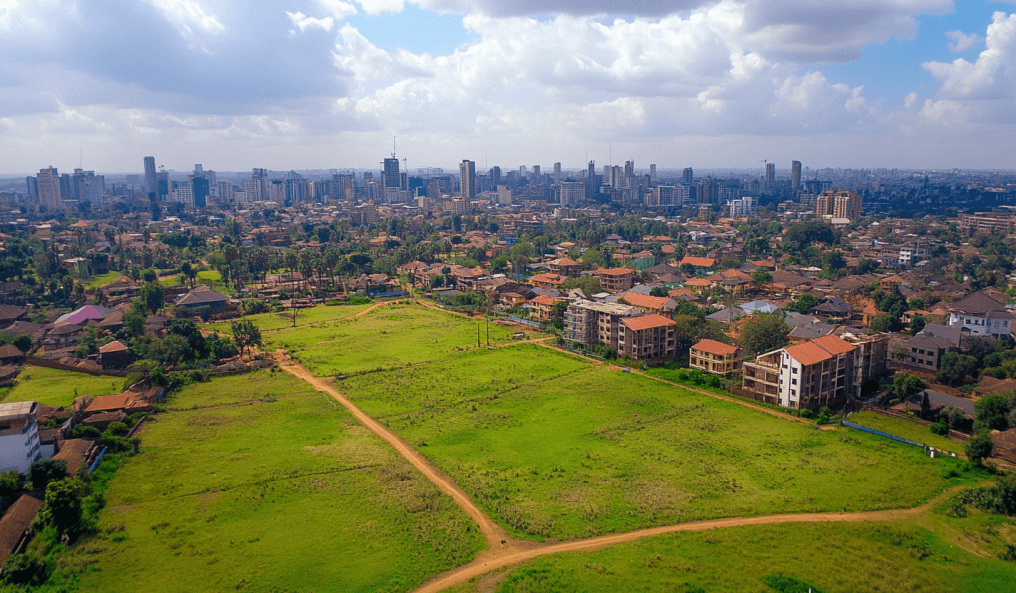Land ownership is a critical aspect of real estate in Kenya, where the right to possess, use, and transfer land is protected by law. At the heart of this concept lies the title deed—a vital document that serves as proof of ownership. This article explores the intricacies of land ownership and the role of title deeds in Kenya, providing comprehensive information for potential landowners and real estate practitioners.
Table of Contents
What is Land Ownership?
Land ownership refers to the legal right to possess and control a piece of land. This right is accompanied by the ability to use the land, lease it, sell it or even transfer it to another party. In Kenya, land ownership can be vested in individuals, groups, or entities such as companies and institutions. Ownership is often classified into several categories. Most common ones include freehold, leasehold and communal ownership.
READ MORE: A Beginner’s Guide and Legal Process to Buying Land In Kenya
Types of Land Ownership in Kenya
- Freehold Ownership: This is the most comprehensive form of land ownership, granting the owner indefinite rights to the land. The owner can use the land as they see fit, subject to zoning laws and other regulations.
- Example: A person owns a plot of land in Nairobi under a freehold title, allowing them to build a house or sell the land at their discretion with no time limit.
- Leasehold Ownership: In this form of ownership, the owner has the right to use the land for a specified period. This usually ranges from 33 to 99 years. The land ultimately reverts to the lessor (usually the government) after the lease term expires, unless the lease is renewed.
- Example: A business leases a commercial property in Mombasa for 99 years, with the option to renew the lease upon expiration.
- Communal Ownership: This type of ownership is prevalent among indigenous communities, where land is collectively owned and managed by a group. The rights and usage of the land are governed by customary laws.
- Example: A community in a rural area collectively owns grazing land used for livestock, with usage rules established by the community leaders.
READ MORE: The Benefits of a Title Deed for Your Property in Kenya
Importance of Title Deeds

- Proof of Ownership: A title deed is the primary document that proves ownership of a piece of land. It is essential for defending ownership rights in disputes or legal proceedings.
- Example: In a dispute over land boundaries, the title deed provides authoritative evidence of the rightful owner’s property limits.
- Facilitating Transactions: Title deeds are necessary for the sale, transfer, or leasing of land. They ensure that the transaction is legitimate and that the buyer or lessee receives clear and undisputed ownership.
- Example: When purchasing land in Kisumu, the buyer must receive a title deed to confirm that the seller is the legitimate owner.
- Access to Financing: Financial institutions often require title deeds as collateral for loans and mortgages. This makes title deeds valuable assets that can be leveraged for financial opportunities.
- Example: A landowner in Nakuru uses their title deed as collateral to secure a mortgage for building a home.
Acquiring a Title Deed in Kenya
- Registration Process: To acquire a title deed, the land must be registered with the Ministry of Lands and Physical Planning. This involves conducting a search at the land registry, obtaining the necessary approvals, and submitting the relevant documents.
- Verification of Authenticity: It is crucial to verify the authenticity of a title deed before completing any transaction. This can be done by conducting a land search at the relevant registry and confirming the details with the Ministry of Lands.
- Resolving Disputes: In cases of disputed ownership or fraudulent title deeds, the matter can be resolved through the courts or alternative dispute resolution mechanisms.
READ MORE: What is The Procedure For Changing The Old Title Deed To The New Digital One?
Challenges in Land Ownership and Title Deeds

- Land Grabbing: Illegal acquisition of land through fraudulent means, often involving forged title deeds, remains a significant issue in Kenya.
- Example: An individual acquires land through a forged title deed, prompting legal action by the original owner.
- Complex Registration Processes: The process of acquiring and registering a title deed can be cumbersome and time-consuming, sometimes leading to delays and disputes.
- Example: A property buyer experiences delays in receiving their title deed due to bureaucratic hurdles at the land registry.
- Boundary Disputes: Disagreements over property boundaries can arise, especially when the land is not properly surveyed and demarcated.
- Example: Neighbors in a rural area dispute the boundary between their properties, leading to a legal challenge to establish the correct boundary lines.
READ MORE: All You Need To Know About Sectional Titles in Kenya
Conclusion
Understanding land ownership and title deeds is fundamental for anyone involved in real estate transactions in Kenya. The title deed not only serves as proof of ownership but also facilitates legal and secure transactions. As the real estate market continues to grow, ensuring the authenticity and accuracy of title deeds is crucial for maintaining confidence in property dealings. Whether you are buying, selling, or leasing land, being well-versed in the legal aspects of land ownership can help you navigate the complexities of the real estate landscape in Kenya.



